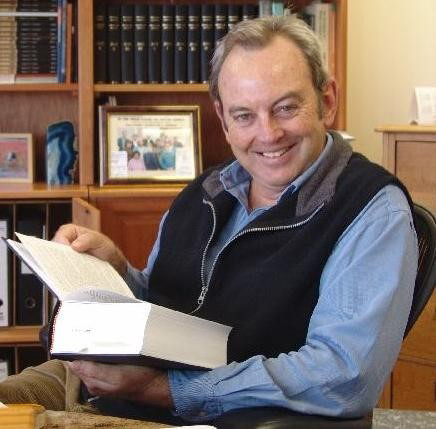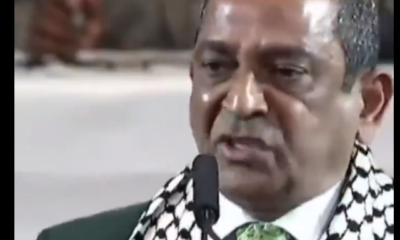
OpEds

Not implementing Concourt rulings is distinctly unkosher
Published
2 years agoon
By
Paul HoffmanThe long-awaited and much hyped State of the Nation Address (SONA) – delivered by President Cyril Ramaphosa from the Cape Town City Hall after Parliament was “Guy Fawkes-ed” – has been pored over and dissected ad nauseam.
This note concerns the paralysis about addressing the failure of the state to issue orange overalls to those involved in state capture, kleptocracy, serious corruption, and, since the pandemic, “covidpreneurism”.
In the vast majority of the corruption cases pending in South Africa, this bilateral, calculated, consensual crime involves at least one player in the public sector and at least one in the private sector.
The huge backlog of cases and the avalanche of work for our prosecution service stemming from the work of the State Capture Commission (SCC) and the Special Investigating Unit on “covidpreneurism” has stacked up. This is simply because the criminal justice administration in South Africa is broken, hollowed out, and infested with saboteurs who make it their business to see to it that orange overalls aren’t issued to the corrupt.
The culture of corruption with impunity is allowed to flourish in the absence of any deterrent effect attributable to successful cases leading to long sentences and the forfeiture of loot.
This parlous position has been the case since the Scorpions unit in the prosecution service was closed down immediately after Jacob Zuma came to power at the Polokwane conference held in 2007.
His comrades resolved that the Scorpions be dissolved urgently and replaced with the tame and inefficient police unit, the Hawks. The Hawks haven’t once landed a corrupt “big fish” during their entire existence.
This unsatisfactory state of affairs has been litigated all the way to the highest court in the land, not once but three times, by Johannesburg businessman Bob Glenister.
He won a famous (and unexpected) victory in March 2011 when the narrowest possible majority of the court found that the Hawks weren’t constitutionally compliant. The court found they weren’t structured and equipped to function as an effective and efficient anti-corruption entity of adequate independence.
In reaching this conclusion, the court set out the criteria for corruption busters. They must be specialised, trained, and independent, with guaranteed resources and secure tenure of office.
These criteria have been compressed into the STIRS acronym, which even features in the National Anti-Corruption Strategy.
The effect of closing the Scorpions down is that today, investigation of corruption is done by the Hawks (sometimes) and prosecution without fear, favour, or prejudice, is done by the National Prosecuting Authority after actionable dockets are presented by the Hawks.
The combined failure of these two institutions to deal with the avalanche of work isn’t their fault. It’s the fault of the government because it was Parliament that was ordered by the Concourt to put in place effective and efficient anti-corruption machinery of state. Very little capacity to do this work exists, as is plain from the track record of the Hawks and those prosecutors involved in anti-corruption work.
This illegality is less than kosher, and hasn’t gone unnoticed. Since 2012, Accountability Now has been advocating for the establishment of a Chapter Nine Institution to fulfil the task set in the Concourt judgment. The government has remained deaf to its advocacy and entreaties.
Since 2020, matters have started to move in the direction of the issuing of orange overalls. The president was asked to address the lack of attention to certain developments on the anti-corruption front in South Africa.
A direct request that he deal with the following developments was essentially ignored:
- The resolution of the National Executive Committee of the African National Congress (ANC) announced on 4 August 2020 in which Cabinet was urgently instructed to establish a new, permanent, specialised, and independent anti-corruption entity;
- The draft legislation and constitutional amendment proffered by Accountability Now in August 2021 which put flesh on the bones of the ANC resolution in a way that seeks to be constitutionally compliant by recognising the binding nature of the majority judgment in the 2011 Glenister case;
- The efforts of the Democratic Alliance to prepare a private members bill that addresses the shortcomings of the Hawks who are supposed to investigate grand corruption but don’t; and
- The recommendations of the SCC as regards the need to counter corruption in the procurement field.
(Let’s all pray that a recommendation to end cadre deployment in the public service and state-owned enterprises will follow in the third tranche of the SCC report due at the end of February 2022.)
There’s simply no political will to seize the nettle and take the necessary remedial steps by way of legislation that addresses the contemptuous failure to implement the STIRS criteria both by the Zuma and Ramaphosa administrations.
The fact that both administrations harboured – and still harbour – the kleptocrats is explanation for the lack of compliance with the binding court rulings.
It’s worth reflecting on the fact that had the Scorpions enjoyed the secure tenure of office available to all Chapter Nine Institutions in our law, they would still be in existence today. And then Zuma would most likely not have been able to occupy the west wing of the Union Buildings because of the interest the Scorpions took in his corrupt relationship with his financial advisor, Schabir Shaik.
Ramaphosa is a trained lawyer. He brokered the settlement that gave rise to the constitutional order now in place in South Africa.
He knows that the rule of law is supreme, and he surely knows that his government is in breach of the rulings in the Glenister case that made the STIRS criteria binding on his government.
He needs to develop the spinal fortitude necessary to enable him to pilot the remedial legislation required through Parliament. His electability is at stake – he’s dithering around his desire for ANC unity and his personal political ambitions. It would be a lot more kosher to focus on reforming the criminal justice administration.
- Paul Hoffman SC is a director of Accountability Now. He was lead counsel for Glenister.










